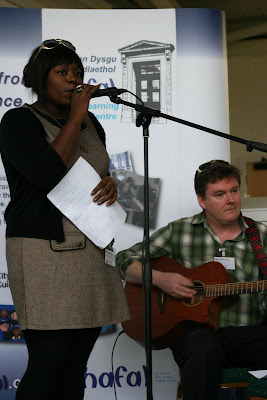
Is the Welsh NHS in serious financial trouble? I don't mean in terms of not having as much money as it would like (that would not be news!) but rather is it living within its means?
I'm not a health economist but I think there is cause to worry. Today the head of the Welsh NHS David Sissling has sought to reassure us by letting us know he's stuffed a big wad of fivers (£50 million) under the mattress in case things get sticky - see the story here. But the Wales Audit Office has said there could be as much as a £130 million deficit by the end of this financial year. Meanwhile only a few days ago the Assembly's Finance Committee expressed extreme scepticism about the Local Health Boards' ability to stay within budget this year.
I suppose we should be reassured by Mr Sissling's prudence in setting money aside but the trouble is that the LHBs know about it and will find it difficult to resist spending it even before it has been allocated. This runs the risk of resulting in that perennial unfairness where a well-run LHB can end up getting less money overall than a badly-run one - talk about perverse incentives!
It is reassuring that the Minister is talking about three year strategic budgets which could make for better planning but there is no substitute for rigorous control and holding LHBs - and their Chiefs and Directors of Finance in particular - to the fire when it comes to financial management.
I trust Mr Sissling will grill senior NHS execs mercilessly in his Star Chamber to ensure compliance with budgets. It just isn't acceptable for NHS organisations to overspend - by so doing they don't enhance health care but damage it, skew priorities, and make more work and waste more resources in sorting it out.
All this reinforces my view that the ring-fence around NHS funding for mental health services is vital and we need to see transparency and consistent adherence to the ring-fence across Wales. This will take time but meanwhile if anybody notes any reduction or withdrawal of NHS funding from any mental health service (however much that may be justified) they should immediately challenge the LHB concerned to explain what other mental health service (enhanced or new) will be the beneficiary of that saving. Don't accept any argument that "mental health has to contribute its share of the savings we have to make" - the ring-fence makes it clear that the funding for mental health cannot be reduced.
For clarity the ring-fence does not (and should not) protect all existing services - some of which may need to give way to new priorities in mental health - but it does protect the funding - hence my point that the LHB must have answers to the questions which I suggest you ask.
Oh, and let us know if you hear about withdrawal of funding so we can also raise those questions...
See below this Blog's favourite monarch, canny Welshman Henry VII, presiding in his Star Chamber which he used to shake down the English aristocracy in order to enhance public expenditure (well, his expenditure really but then he would have said that's the same thing)
















